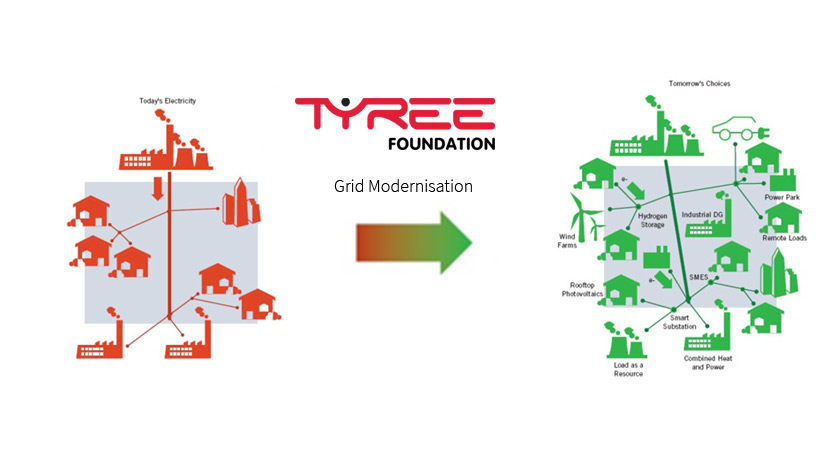The Tyree Foundation announced its commitment of $3.5M of funding for two significant electrical engineering research projects to be completed over a period of three years.
In line with key objectives to advance engineering and education in Australia, the Tyree Foundation has entered into a joint funding agreement with the University of New South Wales and University of Sydney that has brought together these two prestigious bodies to collaborate on two research and development projects that combine education, research and development and live test facilities to provide solutions for social issues including the “Bridging the Gap Initiative” that aims to improve the lives of indigenous Australians in remote communities.
The first of the two projects aims to develop safe reliable microgrids for remote communities in Australia. Rural and remote communities increasingly rely on a wide mix of potential power sources including PV solar, thermal, diesel generators, wind, fuel cells and battery storage. The project aims to develop models for planning and optimisation of this broad range of energy sources to allow them to be interconnected in a microgrid format and remotely managed, to help provide consistent reliable power for remote communities. Critical success factors of the project include providing the capability to provide an affordable solution linking existing best of breed and locally developed components into an architecture that can be safely maintained by local residents rather than needing support that is typically many hundreds of kilometres away.
The second project has been devised to assist rural communities that rely heavily upon SWER (single wire earth return) power transmission for their electricity, and increasingly, PV Solar as a secondary power source. SWER transmission lines are often hundreds of kilometres in length and can be prone to poor reliability due to the very nature of their old design and its ability to supply today’s sophisticated and more demanding loads including televisions, computers and smart devices as well as technical issues induced through weather events and falling trees! Traditional fault finding on SWER lines is often difficult due to the lack of communications and smart technologies which typically requires engineers to “walk the line” to identify problems, this project is seeking to develop low cost remote line monitoring devices that will transmit signals to control stations in order that engineers can pinpoint faults over long distances and allow the restoration of power far more quickly than is currently the case.
These exciting projects will directly employ more than 30 people over the three year project period engaging a mix of research engineers, post graduate engineers and under graduate students to design and develop communication modules and protocols, sensor design and deployment strategies along with appropriate hardware and software solutions.
For further details on the activities of the Tyree Foundation please refer all inquiries to dward@tyree.com.au
